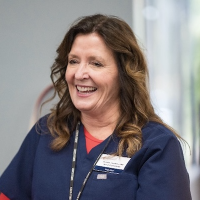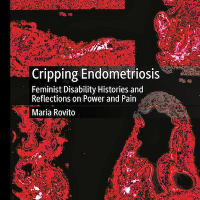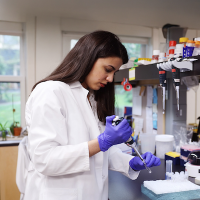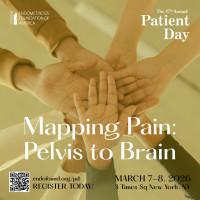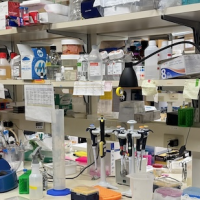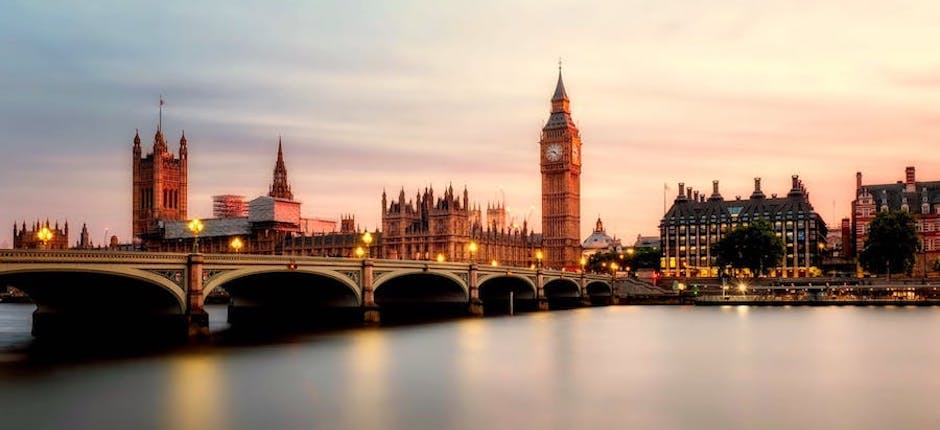
It was February; a dreadfully cold, dreary, and gray month in London. Walking into my flat from work that night, I was exhausted; physically, mentally, and emotionally drained. My job at the time was tough and very stressful, working in a high-pressure environment for a Lord (yes, those still exist in the UK) and my commute alone was taxing: walk to station, take train, change trains, change stations to overground train, walk to office. There and back, twice a day, in the city’s infamous rush hour traffic.
All of this usually meant I was tired when I walked through the door, especially on the days that I had my period. This day, though, was different. I should use the term ‘period’ very loosely here because for the past 18 months or so, I did not have a period because I never really stopped bleeding. My cycle had not been consistent for years, but over the past several months, the time in between bleeds had lessened and then altogether disappeared, and the associated pain became constant. This never-ending blood was not the bright red, healthy blood that one may expect as part of a monthly cycle, but instead a dark brown, sticky, and clotted substance that was ever-present.
Our routine back then was pretty normal for a recently married, early 30s-something couple living in London: work a full day, come home, maybe meet some friends at the pub for a drink if we felt up to it, eat dinner late (9 or 10pm), go to bed exhausted and get up and do it all again. I had made it through my workday with the usual assistance of my hot water bottle and multiple rounds of ibuprofen and was looking forward to taking a hot shower, eating dinner, and getting into bed.
The next thing I knew that evening, I was curled up in fetal position on our bathroom floor, completely naked (I didn’t make it from the toilet to the shower), and writhing in pain. Over the years, I had learned (or better yet convinced myself) that when this kind of pain would strike (sometimes from trapped bowel movements, sometimes completely at random), that I just had to breathe deeply and get through it. “It will stop,” I would tell myself. “This too, shall pass.”
With the help of my husband, I made it to our bed, covered myself up with a blanket, and turned on my electric heating pad. But after a few hours, the pain had not diminished. My husband made me call 111, a hotline in the UK for non-emergency scenarios. Following a brief conversation with the operator and a description of my symptoms, we were in the car bound for the nearest A&E (ER).
After several hours of waiting, blood and urine testing, poking, prodding, and all the rest, I was admitted and learned I would have an appendectomy first thing in the morning. The pain had finally subsided without any medication, just vanished as it often did. I remember lying in the hospital bed, hooked up to the IV, and crying to my husband that the doctor’s diagnosis was wrong. I knew it was not my appendix.
Sure enough, an ultrasound the next morning determined that my pain was not due to my appendix. With my scan results clear, I was packed up, discharged, and sent home. No explanation, no alternative diagnosis, no further treatments or follow-up appointments.
Fast-forward a few months and I was back in the hospital, this time for an appointment at the University College London’s specialty endometriosis clinic, which was supposedly well recognized in the UK. I was so excited to finally be there; it had taken me the best part of six years, countless GP and gynecologist visits, vaginal ultrasounds, and a trip to the emergency room to be awarded the privilege. Sitting in the medical room that day, on my own as my husband had to work and my parents lived in the US, the doctor gave me his diagnosis. Due to the predicted stage of my endo and the potential bowel involvement, it was very likely that with surgery I would have a possible hysterectomy (at 30) and come out with a stoma, because they would have to cut into and remove a section of my intestines. That was it. Coldly delivered with zero bedside manner and perfected British matter-of-factness.
If that shocking diagnosis wasn’t enough, the doctor also told me that because the condition was not deemed life-threatening, I would be placed on a surgical wait list that could last up to two years, and in the meantime, they could prescribe further hormones and pain medication to hopefully dull the symptoms. You know, “make them tolerable,” he said.
That day, and that doctor, was the last straw for me. It was my breaking point, the icing on the proverbial sh*t-cake that I felt had been my life for the past several years. It was time for me to make a change and self-advocate because I genuinely felt, at that stage, that I could not go on living with this life-consuming monster of a disease. How dare he tell me I was essentially not important or sick enough to treat. That’s one example of the sad reality of socialized healthcare.
The rest of my endo journey was pretty streamlined. My family and I did a lot of our own research. We found a specialized surgeon back in the US who provided a completely different (and much more positive) diagnosis, my husband and I made visa arrangements (he is British), and we put everything into place to move back to the US, leaving our family, friends, jobs, and ten years together in London behind.
I was lucky. I know this. Despite everything I experienced. I have had continuous emotional and financial support from my family and friends. I have parents who could afford to pay my insurance and surgical bills because I could not. I have a husband who left his family and everything he knew to move to another country and help me through recovery. I have friends who were patient with me as I transitioned back into American culture. It has not been an easy journey, but it has been a supported one. Not everyone has this support; like I said, I know I am lucky.
Following my four hour surgical procedure which excised my extensive endo, removed multiple cysts and fibroids, repaired one of my ovaries, took out my appendix, and successfully detached my bowels from my uterus (without having to remove any section of my intestine, by the way!), I am so thankful to proclaim that I feel amazing. I stopped taking hormones and allowed my body to self-regulate, which it has done very successfully. My periods are now “normal,” meaning they are consistent, about 30 days apart, bright-red and healthy blood for a couple of days before it lightens up and most importantly – NO PAIN!
This has been a life-long battle and life-changing process for me. I read about nutrition now, pay attention and have learned to watch what I eat, noticing the effects of meat and dairy. I am an absolute advocate for any kind of preferred exercise (mine is hot yoga). By going off the birth control that I had been taking for nearly fifteen consecutive years, I have learned how to regain and reset my mental health and control my emotions. By strengthening and improving my pelvic floor muscles, my husband and I are slowly getting our sex life back on track.
I hope anyone reading this, male or female, will understand that debilitating back pain, leg pain, pelvic pain, frontal cramps, fatigue, nausea, and headaches accompanying your period are NOT normal. Bursting into tears or experiencing severe depression, anger, frustration, and mood swings every day is NOT normal. Missing school, work, or social activities for any of these reasons is NOT normal and most importantly, is unacceptable. This experience was difficult not only for me, but for my husband, parents, close family and friends. Nonetheless, I am thankful because it taught me to be my biggest advocate. It taught me to research and be confident that I know my body better than others know my body.
I will never forget the moment when the UK specialist proclaimed with absolute certainty that my condition was not life-threatening. This could not have been any further from the truth. This disease affects all aspects of a woman’s life, no matter what stage of life they may be in. It affects your relationships, your ability to cope and reason, your body image and your self-confidence. How is living this way any less life-threatening than a terminal diagnosis? In my opinion, it’s not living – it’s struggling every single day to simply exist.
I hope that with more organizations advocating for further research and raising awareness, with more medical practitioners learning about the disease, and with more women understanding their own bodies and speaking up for themselves, less women will suffer. If you are someone who is suffering, or know someone who is, please do not stay silent. Do not let your doctor convince you that it’s something else or that it’s “normal.” Do not let them pump your body full of hormones to mask your symptoms. Get a second opinion, then get a third. Speak up, get support any way you can, and work towards changing your life for the better.
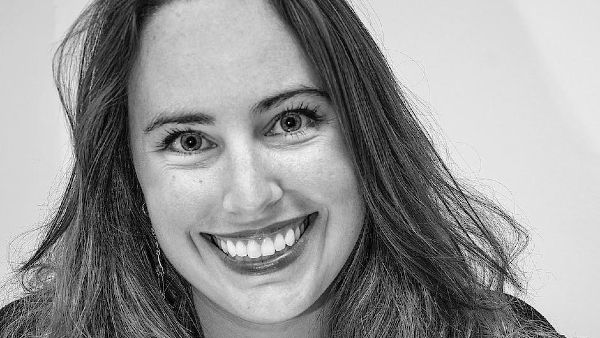
With a background in Art History and Contemporary Art and nearly a decade living in London, Chelsea and her husband, Nicholas now reside in Florida. They enjoy traveling, new cultural experiences and cuisine. Experiencing the benefits firsthand, Chelsea has become a lifelong advocate for the hot yoga practice.
Editor's note: Would you like to contribute to EndoStories? Click here to learn how to submit your work.
*Patient stories submitted to Endofound.org are the views of the patient and not necessarily those of the foundation.



